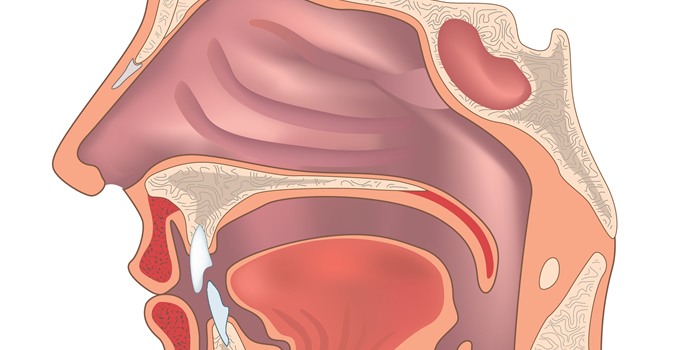
Nasopharyngeal Cancer
Nasopharyngeal cancer occurs above the back of the throat and directly behind the nose in an area called the nasopharynx. This form of cancer affects approximately one in 100,000 people in the United States each year, which makes it extremely rare. Nasopharyngeal cancer is seen much more frequently in areas of Northern Africa and Southeast Asia.
What are the Symptoms of Nasopharyngeal Cancer?
The symptoms of nasopharyngeal cancer are easily overlooked since they are similar to those of common viral or bacterial infections, such as a cold. In fact, many patients may not experience any symptoms until the cancer is rather advanced. When they do occur, the symptoms that are most often associated with nasopharyngeal cancer include:
- A sore throat, congestion, and other cold-like symptoms that do not resolve
- Frequent ear infections
- Headaches
- A feeling that there is a lump lodged in your throat or neck
- Changes in hearing
- Blood-tinged saliva or mucus
- Who is at Risk for Nasopharyngeal Cancer?
A number of different factors can contribute to an increased risk of developing nasopharyngeal cancer, including:
- Age: Nasopharyngeal cancer is most often seen in adults between the ages of 30 and 50
- Gender: Men are more likely to develop this form of cancer than women
- Ethnicity: Nasopharyngeal cancer is most often seen in individuals of Southeast Asian and Northern African descent
- Certain infections: Epstein-Barr virus (EBV), which normally only causes mild cold-like symptoms, has been linked to an increased risk of certain cancers, including nasopharyngeal cancer
- Diet: The smoke and steam from smoked meats or vegetables can enter and irritate the nasopharynx
How is Nasopharyngeal Cancer Diagnosed?
As with other types of cancer, the diagnosis of nasopharyngeal carcinoma involves a combination of both a hands-on physical examination and advanced diagnostic testing and imaging:
- The doctor will obtain a detailed medical history including a review of your symptoms.
- The doctor will also perform a targeted exam of the head, neck, and throat to identify swollen lymph nodes and other abnormalities.
- An endoscopy may be performed to allow the doctor to visually inspect the entire nasopharynx and oral cavity. This involves inserting a thin, lighted tube into the nasopharynx through the nose or mouth. If anything abnormal is seen, a small sample of tissue may be obtained during the procedure in order to perform a biopsy.
- X-rays, CT scans, MRIs, and PET scans provide a detailed view of the structures of the head and neck and may be useful in confirming or ruling out a diagnosis of nasopharyngeal cancer.
Treatments for Nasopharyngeal Cancer:
Treatment options vary depending stage of the cancer, your overall health, and a variety of other factors:
- Radiation therapy is often a key component of treatment since this form of cancer is typically very responsive to radiation. Radiation may be used alone or in conjunction with other therapies.
- Cycles of chemotherapy may be used in combination with radiation in advanced-stage nasopharyngeal cancer.
- Surgery may be used to remove a tumor. It is very difficult to operate on the nasopharynx, so this is typically only done in cases where the cancer does not respond to radiation or chemotherapy.

